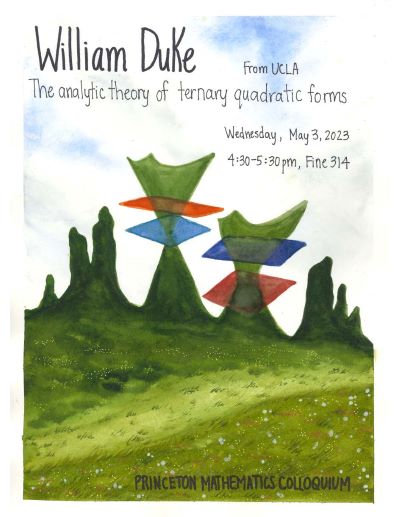The analytic theory of ternary quadratic forms
The analytic theory of ternary quadratic forms
In-Person and Online Talk
After a somewhat general overview about the representation of integers by an integral ternary quadratic form, I will discuss some recent results about indefinite forms that represent zero. In particular, I will present a new local-global result about the primitive representations of zero by a ternary quadratic form. One ingredient in the proof is an asymptotic formula for a count of the zeros of a given form in an automorphic orbit. Together with an extension of a result of Kneser, shown to me by Schulze-Pillot, we get a quantitative supplement to the Hasse principle on the number of such orbits in a genus of forms. When the genus contains a single class, which is typical, we get a simple formula for the number of orbits. This generalizes the well-known fact that Pythagorean triples lie in a single orbit.
